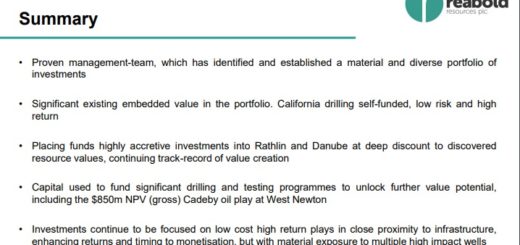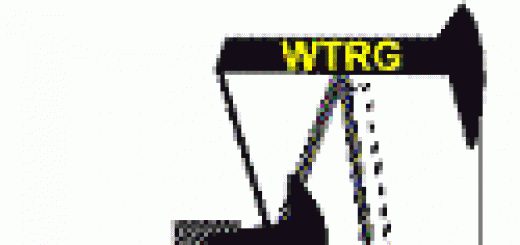 Mr Samaras’s comments come two days before a team of Greece’s debt inspectors arrive in Athens to push for further austerity measures if the debt-laden country wants to qualify for further rescue payments and avoid a chaotic default. Athens wants to soften the terms of a 130bn euros bailout agreed last March with the European Union and the International Monetary Fund, to soften their impact on an economy going through its worst post-war recession. Greek GDP is expected by the end of this to have shrunk by about a fifth in five consecutive years of recession since 2008, hammered by tax hikes, spending cuts and wage reductions required by two EU/IMF bailouts. Unemployment climbed to a record 22.6% in the first quarter.”You had the Great Depression in the United States,” Samaras told Clinton, who was visiting Greece as part of a delegation of Greek-American businessmen. “This is exactly what we’re going through in Greece – it’s our version of the Great Depression,” according to The Telegraph.
Mr Samaras’s comments come two days before a team of Greece’s debt inspectors arrive in Athens to push for further austerity measures if the debt-laden country wants to qualify for further rescue payments and avoid a chaotic default. Athens wants to soften the terms of a 130bn euros bailout agreed last March with the European Union and the International Monetary Fund, to soften their impact on an economy going through its worst post-war recession. Greek GDP is expected by the end of this to have shrunk by about a fifth in five consecutive years of recession since 2008, hammered by tax hikes, spending cuts and wage reductions required by two EU/IMF bailouts. Unemployment climbed to a record 22.6% in the first quarter.”You had the Great Depression in the United States,” Samaras told Clinton, who was visiting Greece as part of a delegation of Greek-American businessmen. “This is exactly what we’re going through in Greece – it’s our version of the Great Depression,” according to The Telegraph.
The impact of the worst drought to hit the United States in more than half a century has been felt in Britain by an importer that was forced to pay record prices for thousands of tonnes of cattle feed last week. Data published by the US Government show that a British company bought 112,000 tonnes of soya beans from American farmers on Thursday, the day that prices hit an all-time high. The order is more than Britain has bought from American farmers over the past five years combined and analysts said that it indicated how desperate buyers were to guarantee supplies. Soya bean and corn feed typically can account for half of a cattle farmer’s costs and the high price paid by the unidentified buyer last week is likely to be passed on to consumers. The US Department of Agriculture has said that the drought afflicting the world’s largest economy is the worst since 1956. Two weeks ago American officials cut their crop production forecast by 12%, The Times reports.
Murcia yesterday became the latest Spanish region to ask for financial help from the Government, in a move that will add to market concerns that the country will be forced to request a full bailout from Europe. The eastern province, perhaps best-known for its golfing developments, is €2.8bn in debt and will ask for up to €300m. Ramón Luis Valcárcel, its prime minister, said: “We don’t know the amount yet, but clearly we hope that by September it is available.” When Valencia said on Friday that it would ask the Spanish Government for €2bn to stop it going bankrupt, Spain’s bond yields jumped to 7.2%, despite the official deal on its €100bn banking bailout being sealed the same day. The Madrid stock exchange plunged by 5.8%, says The Times.
JLT Pension Capital Strategies, a consultancy, said the total deficit of blue-chip schemes stood at £73bn on March 31, compared to £35bn a year earlier. The company said International Airlines Group, BAE Systems and BT are among eight FTSE 100 companies whose pension liabilities are now actually greater than their equity market value. Rising deficits have been driven by poor returns on equities and the Bank of England’s quantitative easing programme. This is because the Bank uses the money to buy debt, which pushes up the price of Government gilts. This creates lower returns, or yields, on pension funds’ investments, The Telegraph holds.
Treasury intervention, unnecessary increases in costs and the risk to badly needed investment are cited by the Energy and Climate Change Select Committee as the result of a catalogue of blunders made in the draft Energy Bill. The Bill, aimed at paving the way to a low carbon energy industry and stimulating investment of £110bn in new plants has already drawn heavy criticism but the committee’s report goes further in identifying flaws the MPs say might mean the policies fail to deliver. Ed Davey, Energy Secretary, is already heavily engaged in defending the reform measures and protecting the “green agenda” he sees as a crucial element of policy, The Telegraph writes.
Chancellor George Osborne should introduce a 2p cut in National Insurance, borrow more and abandon his austerity strategy, a report from an economic think-tank warns today. The report by the Institute for Public Policy Research claims that government cuts are worsening the recession by undermining confidence among businesses and consumers. Gross Domestic Product figures are expected to show on Wednesday that the UK’s double-dip recession is deepening. The IPPR report follows a similar assessment of the UK economy last week by the International Monetary Fund. And today a letter from First Minister Alex Salmond is expected to arrive on Mr Osborne’s desk echoing the IPPR’s calls, The Scotsman says.
Lending to cash-strapped businesses and households is set to fall sharply this year, despite a raft of government initiatives to encourage banks to lend more, Ernst & Young warned today. The accounting firm also said that total income across Britain’s banks could fall 2.5% to £139bn because of higher funding costs and increased competition for deposits, but it has predicted the wider economy will return to growth later this year. Official figures due for release on Wednesday are expected to show that Britain’s economy has contracted for a third consecutive quarter, with analysts predicting a fall in GDP of up to 0.4% for the three months to June. That would follow declines of 0.4% in the final quarter of 2011 and 0.3% for the first three months of 2012. Howard Archer, chief UK and European economist at IHS Global Insight, expects the economy to bounce back in the third quarter, with 0.6% growth between July and September, The Scotsman reports.


